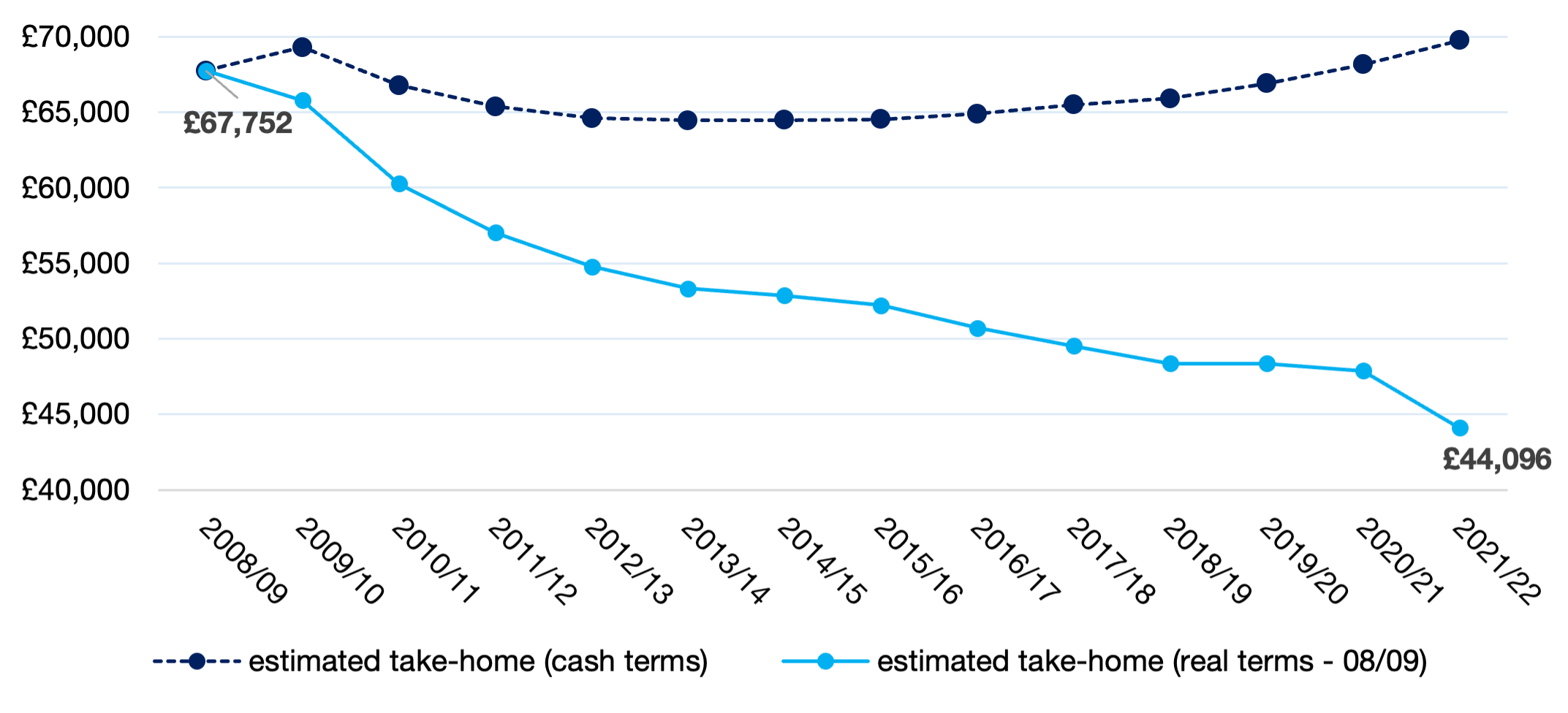For far too long the dedication, skills, and work of consultants in England have been undervalued. We have experienced year-on-year pay erosion that for some has resulted in real-terms pay cuts of nearly 35%.
At the same time, many consultants continue to deliver work outside of their contract. However, the amounts paid for this work vary across the country. This cannot go on – the BMA believes every consultant in England should be paid what they’re worth.
As the motion from this year’s consultants conference made clear, members in England want to know the rates they should be charging. Therefore, we have now launched a new guide with standard pay rates for non-contractual work to help you negotiate fair pay for the extra work that you do.
Why are we suggesting standard minimum rates for extra-contractual work?
Research via our regional networks has revealed that there is a huge difference in the amounts paid for extra-contractual work across England. This work typically, wherever it’s carried out, requires the same skill, time, and associated administration time.
Many employers are applying undue pressure on consultants to perform extra-contractual work at woefully low rates of pay, despite this extra work being entirely voluntary and if done, is done by mutual agreement. There is therefore a clear need for the BMA to clarify which work is extra-contractual and outline standardised minimum rates of pay.
An additional component of this was to review what parts of a consultant’s typical working week that may be included in their job plan are extra-contractual, and as per the 2003 terms and conditions of service can only be scheduled via mutual agreement. This is long overdue as many of us have found that our working patterns have changed to include such work, while our contract has not.
Why is this needed now?
There are many ways of calculating pay; the most keenly felt by a doctor is the amount paid into your bank account, ie your take-home pay and the relative purchasing power of that amount. The real take-home pay of the average consultant in England has fallen by nearly 35% from 2008/09 to 2021/22. With inflation continuing to rise to historic heights, a sub-inflationary 22/23 pay award would significantly worsen this result.
Cumulatively over this period, average weekly earnings in both the public and private sectors have risen more than twice as fast as consultant pay awards in cash terms. Despite ‘unbelievable’ calls for wage restraint in the face of high inflation, labour costs – particularly in the health sector – are not the primary driver of inflation. To understand more about this, we recommend this New Statesman article on the drivers of inflation.
As this graph demonstrates, take-home pay for the average consultant in England has already declined by 34.9% in real terms since 2008/09 (accounting for estimated tax and pension contributions).
 Real decline in value of estimated take-home pay for average consultant (England) using RPI (Source: BMA analysis of NHS Digital’s NHS Staff Earnings Estimates)
Real decline in value of estimated take-home pay for average consultant (England) using RPI (Source: BMA analysis of NHS Digital’s NHS Staff Earnings Estimates)
Do not convince yourself it has been the same for everyone; it has not, nor has it been the same even for other staff in the NHS. Independent analyses repeatedly reveal that consultants are the worst performing group. To look at this another way, if you worked as a consultant Monday to Friday in 2008/09 and you still do now, you are effectively working nearly two days a week for free. Most of us can imagine two days a week we’d rather avoid!
Why should I demand these rates?
We have come to the unavoidable conclusion that our pay review body, the DDRB (Review Body on Doctors’ and Dentists’ Remuneration) is no longer truly independent and is instead subjected to undue political interference. If it were truly independent, how could it oversee a fall in doctors’ pay of that magnitude? The pay review body needs urgent reform and it now needs to take meaningful steps to restore doctors’ pay. Our members are clear that this must be done, with a recent motion calling for pay restoration overwhelmingly supported at our recent annual representative meeting.
People may argue now is not the time. Unfortunately, despite providing excellent economic data every year since 2008/09, when sometimes the economy was good and other times not so, our pay has been effectively ignored. Some may say, I’d rather we gave it to nurses or to those struggling with the cost-of-living crisis. However, this is not a zero-sum game; funding is a political choice. It is the Government’s responsibility to provide a health service, not the individual worker.
Part of the Government’s responsibility is to pay those who work in the NHS fairly, to encourage their retention and maintain their morale, and not abuse their position as an effective monopoly employer. While we are lobbying government for DDRB reform, this will take time. What we can do now is ensure that any work you do outside the contract is paid at appropriate rates.
It is important that we all start valuing our time and insist on ensuring that your employer is paying you at least the BMA minimum rate. In our guidance you can find possible answers to the responses you may get from your employer. But by insisting on the BMA’s minimum rate, not only will this start to restore pay, ultimately it will ensure the DDRB and Government start to engage with the BMA to address the pay erosion we have suffered since 2008/09.
Vish Sharma is chair and Mike Henley is deputy chair of the BMA consultants committee

